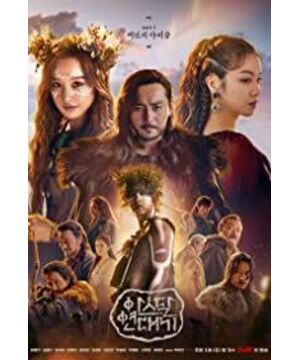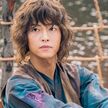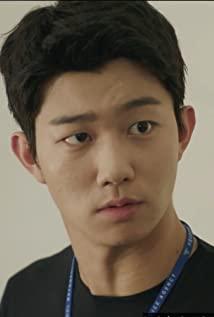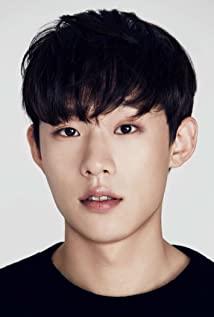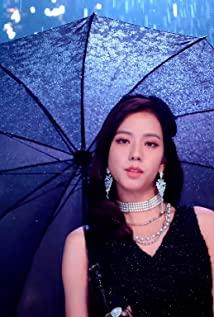The preface looks back on the history of Korean dramas:
1.
The germination period of Korean dramas should have begun in 2000. The mystery caused by the pursuit of alienation is the underlying logic of this period. Deviating from life and adding to the ups and downs of life and death are the characteristics of this period.
Classic representative "Blue Life and Death Love", "Stairway to Heaven", "Sorry, I Love You"
The three treasures of Korean dramas summed up by later generations: car accident, amnesia, terminal illness; they have been learned from each other by major screenwriters. Representative screenwriter of dog blood Korean drama: Li Qingxi.
2.
A few years later, the elements of life began to be injected into film and television works, or adapted in real life. It has the atmosphere of fireworks in the world, and it is an attractive enough story.
Classic representative "My Girl", "Full House", "My Name is Kim Sam Soon"
The screenwriters went from pure brain hole to this stage to observe life and adapt life.
3.
Korean dramas around 2015 are very mature in terms of actors, screenwriters and directors. If you know how to reflect on society, the storyline will be richer, the rhythm of the story will be faster, and the ways will be more diverse.
Classic representative "You Who Came From the Stars", "Descendants of the Sun", "The Third-rate Road"
4.
Since then, Korean dramas have begun to blossom, the subject matter is no longer limited to love, and the story setting has long since separated from the three treasures of Korean dramas.
Life series "Answer", workplace series "Weisheng", "Major League Baseball", "Wise Doctor" series
Suspenseful detectives such as "Signal" and "Flower of Evil", brain-burning "Nine Time Travel", "W - Two Worlds Connected"
Although Korean dramas have been developed for more than ten years, they are still inseparable from Korean culture. Honorifics and bowing are born from the strong order of old and young. I especially like the level of grading, the relationship between servants and masters, and the relationship between employees and representatives. Emphasizing that obedience also gives birth to a team culture, which is exaggerated within the enterprise and in the government. How exaggerated the team culture is, you can directly refer to the fate of previous South Korean presidents. Therefore, the big theme of chaebols, regimes, and civilians in Korean dramas is basically impossible to escape.
Regime breakdown: Blue House, prosecutors, major police branches
The chaebol subdivision: polygamy and multiple children, children can’t get away with marriage, chaebol brothers are fighting for girlfriends or family property.
After Netflix invested in, it has been changing in order to adapt to different market Korean dramas. A huge change visible to the naked eye is that they try to move from Korea to the world, either by combining Korean culture with European and American cultures; And "Asda Chronicles" is the latter.
"Asda Chronicle" tries to skip the history of Korea and the culture of East Asia, and directly explores the origin of human civilization, seeking the essence of power struggle and the essence of human nature. But the ability of culture to subtly influence is as huge as gravity cannot escape, and it also affects the show "Asda Chronicles".
The setting of the heroic epic in the fictional historical background of "Asda Chronicles". The fictional location is As, which is an imaginary continent, and Asda is the first city born on the continent. There are three tribes and three races on the land of Aspen.
OK, back to topic. Why "Asda Chronicles" is still a traditional Korean romance drama
At the beginning of the Korean romance drama tradition, the male and female protagonists recall killing.
The first episode of the opening chapter is memory killing, and the setting is still that the male and female protagonists have good memories of childhood sweethearts. This setting is really in the minds of the majority of screenwriters, and it has traversed the entire era of Korean dramas. I'll give you a count of how many Korean dramas have been killed by memories, from "Blue Life and Death" and "Stairway to Heaven", to "Pinocchio", "I Hear Your Voice", "It's Okay Although I'm Mental", "I My neighbor is EXO", "Why is Secretary Kim like that", "Her Private Life", fantasy "Flower Travels", "Ghosts", "Hotel Del Luna" can't escape. Is it that the screenwriters feel that the feelings that have accumulated over time are too mellow? ?
Early stage plot settings, graded according to blood color
According to the script, human blood is red, Nianta's blood is blue, and the half-blood Igort's blood is purple. Human beings are the most advanced, and Igots are the lowest, also known as bipedal birds. There are divisions in European and American dramas because it is understandable that the races are different and the skin color is different, but the Korean dramas in the island countries are divided by blood in order to force people to divide the grades. In the real world, how much wealth and power are used to divide the level, and when it comes to fantasy, it is divided by blood? Hierarchical culture is so deep into the bone marrow? ? ?
lazy, next time
View more about Arthdal Chronicles reviews


